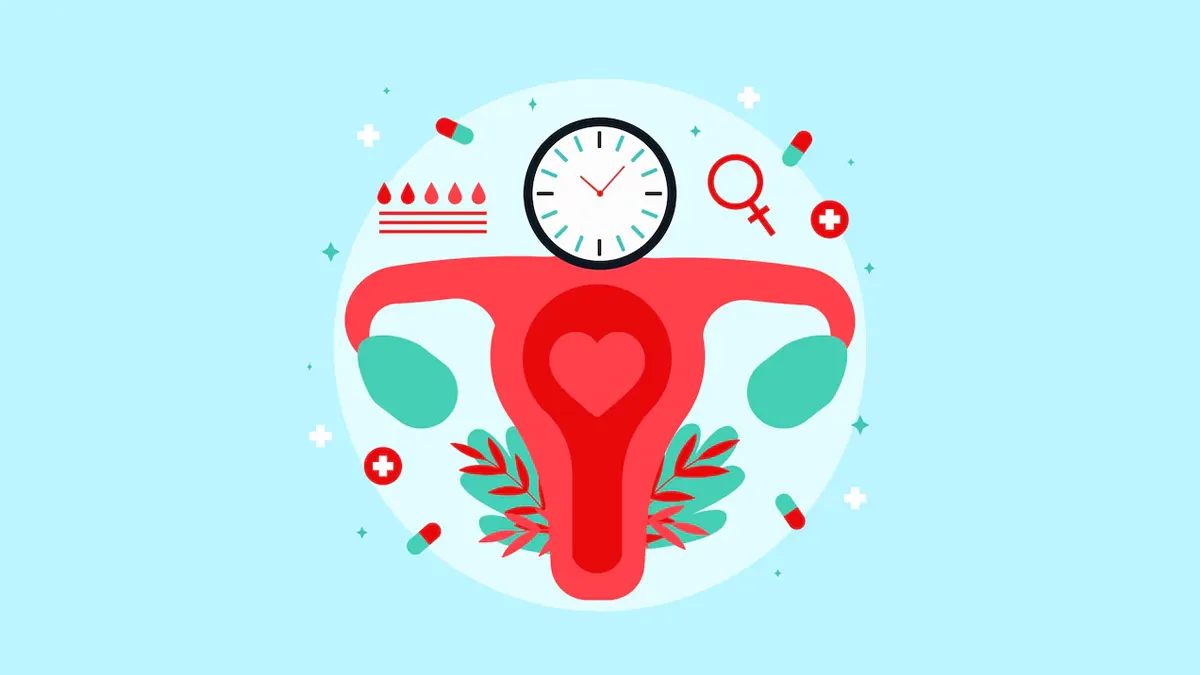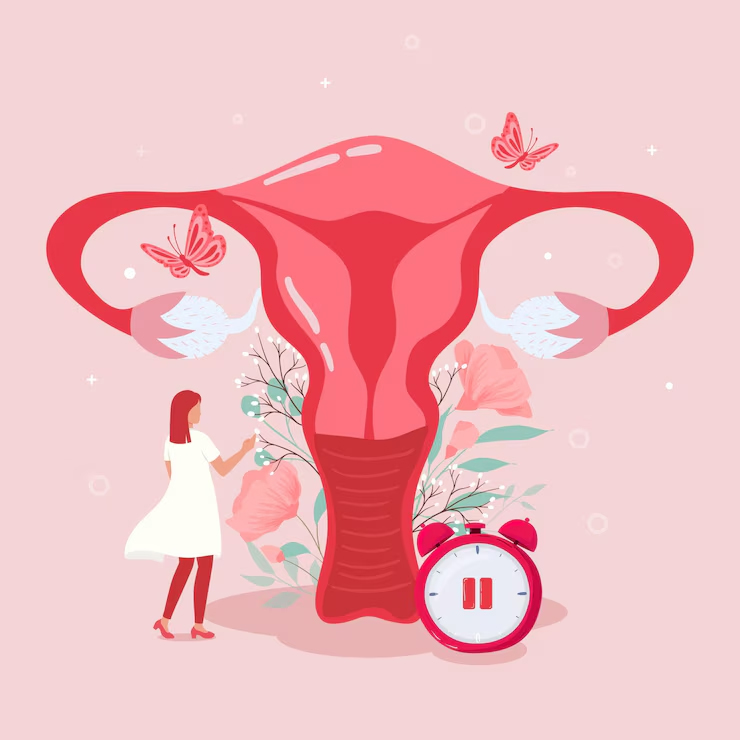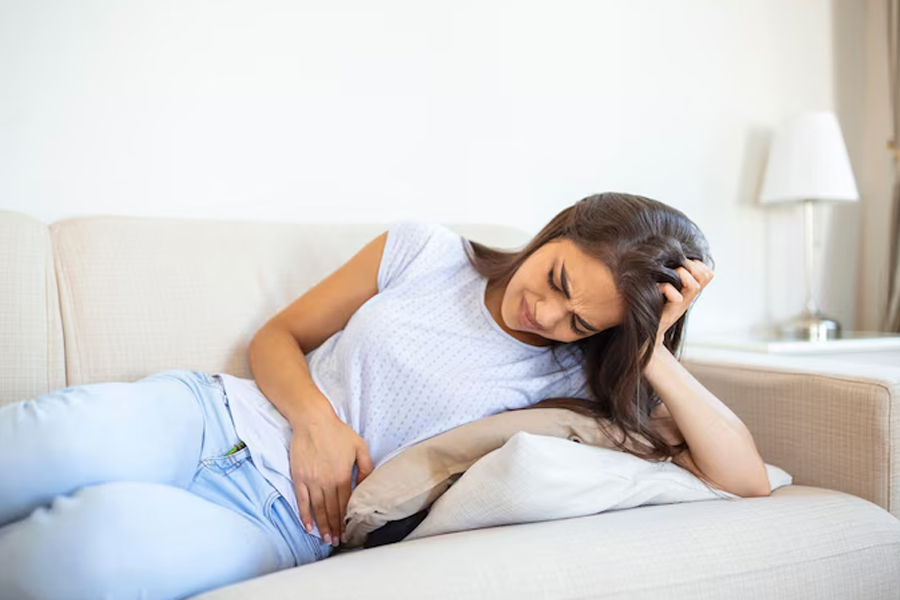
Kissing Ovaries Symptoms, Ages Most Affected, Treatment, And Tips: Kissing ovaries is a term that refers to a rare condition where both ovaries are in close proximity to each other, often due to the presence of endometriosis or other underlying health conditions. This condition can cause various symptoms, and it’s essential to understand its impact on women’s health, its causes, and how it can be treated. For this, we got in touch with Dr Mannan Gupta, Chairman & HOD- Obstetrics & Gynaecology, Elantis Healthcare New Delhi, to gain expert insights into managing kissing ovaries:
Kissing ovaries occur when the ovaries are located unusually close together. The condition is often associated with endometriosis, a disorder where tissue similar to the lining of the uterus grows outside the uterus. It is not necessarily a disease condition but most often an indicator of a more severe underlying issue, the most frequent of which is severe endometriosis or pelvic adhesions.

Dr Mannan Gupta explains, “In a normal female pelvis, the ovaries are distinct on either side of the uterus. But in the presence of bands of scar tissue, either due to long-standing inflammation or due to surgery in the past, they will draw the ovaries towards each other. With endometriosis, the tissue that looks like the uterine lining grows outside the uterus and causes scarring, cysts, and adhesions, leading to the condition of kissing ovaries.”
The symptoms of kissing ovaries can vary depending on the severity of the condition and any underlying disorders, such as endometriosis. Common symptoms, as shared by Dr Mannan Gupta, include:

Pelvic Pain: Women with kissing ovaries may experience persistent or severe pelvic pain, especially during menstruation or sexual intercourse.
Painful Periods: Heavy, painful periods are a common symptom, often accompanied by cramps that are more intense than typical period pain.
Painful Intercourse: Sexual intercourse causes pain in many women, a condition referred to as dyspareunia. This occurs because the ovaries and surrounding tissues are inflamed or adhered to each other.
Infertility: As kissing ovaries are often linked to endometriosis, infertility can be an issue, as the condition can affect the ovaries, may disrupt ovulation, and disrupt the architecture of the reproductive organs.
Abnormal Bleeding: Some women may notice irregular bleeding, heavy menstrual bleeding, or spotting between periods, indicating hormonal imbalance or pelvic tissue damage.
Don't miss: Can Hormones Make Asthma Worse, Especially for Women? Expert Decodes

Kissing ovaries can affect women of all ages, but it is most commonly diagnosed in women of reproductive age, typically between 20 and 40 years old. Dr Mannan Gupta shared, “Women who have undergone pelvic surgeries, including fibroids, ovarian cysts, or previous cesarean deliveries, are also at increased risk because of potential scar tissue formation.” Women who have a family history of endometriosis or other reproductive health issues may be more at risk.
Don't miss: How Fibroids Affect Female Fertility? Expert Tips On Early Detection And Prevention
The treatment for kissing ovaries often depends on the severity of the symptoms and the underlying cause. If you experience persistent pain in your pelvic area or difficulty getting pregnant, you should go see a physician. Dr Mannan Gupta suggests, “Diagnosis for kissing ovaries is most often made with a pelvic ultrasound, MRI, or laparoscopy, giving physicians the opportunity to look inside the pelvic region.”
The expert further advises that, “Treatment varies with symptom severity and fertility intentions, and can be hormonal therapy (such as birth control pills or GnRH analogues), pain management with NSAIDs, laparoscopic adhesion removal, or fertility treatment such as IVF. Early detection and treatment of endometriosis prevent kissing ovaries and conserve fertility, and thus regular follow-up is important.”
If you experience any of the symptoms, it’s essential to seek medical advice for an accurate diagnosis and to discuss the best treatment plan.
For more such stories, stay tuned to HerZindagi.
Image credit: Freepik
Also watch this video
Herzindagi video
Our aim is to provide accurate, safe and expert verified information through our articles and social media handles. The remedies, advice and tips mentioned here are for general information only. Please consult your expert before trying any kind of health, beauty, life hacks or astrology related tips. For any feedback or complaint, contact us at [email protected].